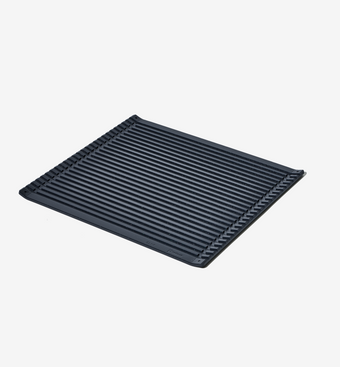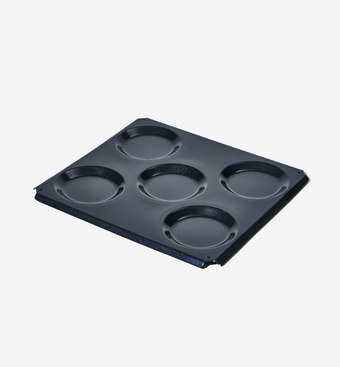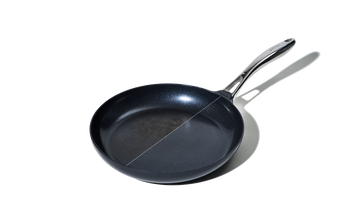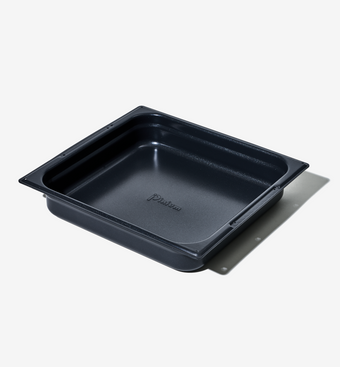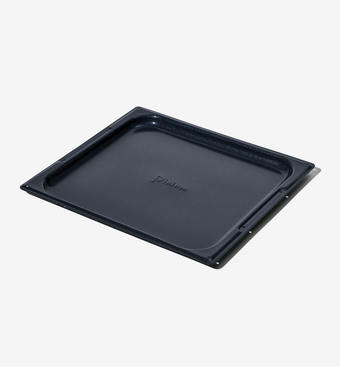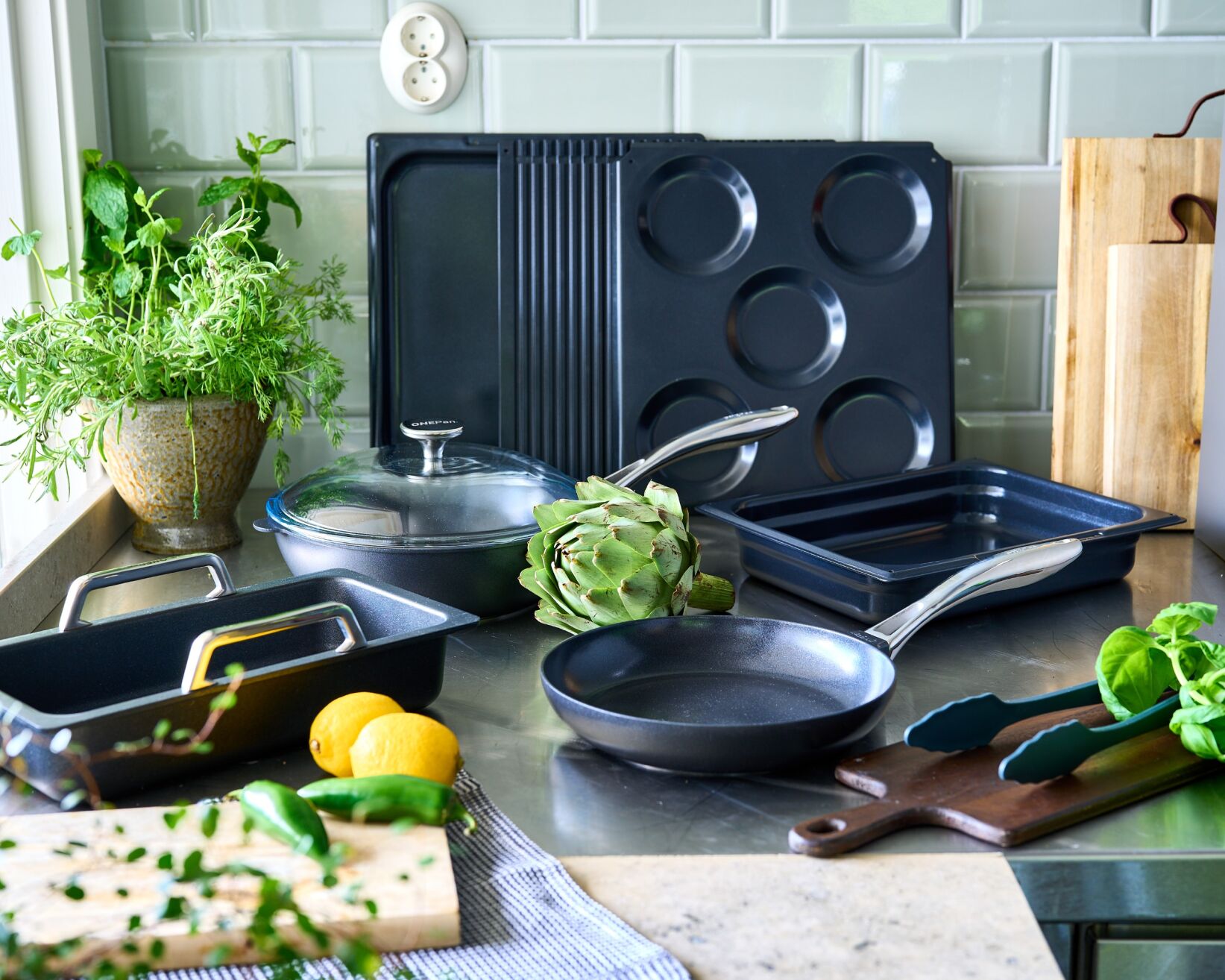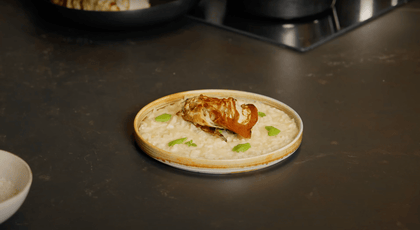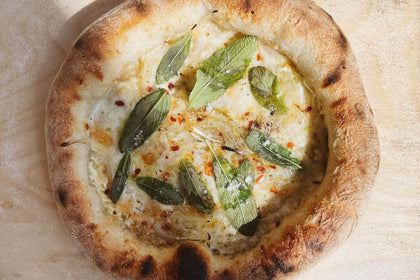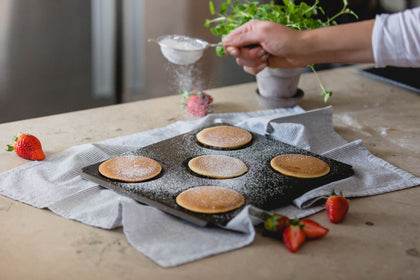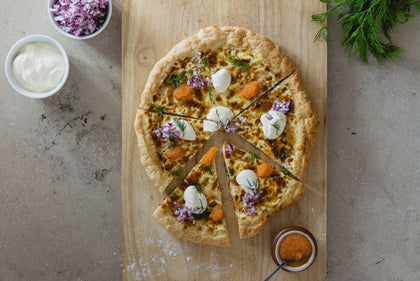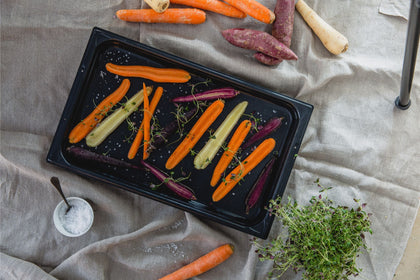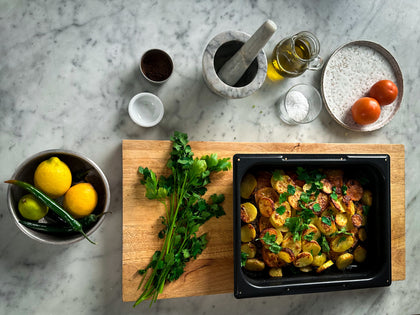A scratch is not the end of the world, or your pan.
OnePan, unlike virtually all other frying pans on the market, is designed for its non-stick coating to be repainted over and over again when it becomes worn—without compromising on premium quality. For a third of the price of a new premium pan* you can choose to re-coat your OnePan and receive a like-new pan from our circular system –helping you to reduce up to 95% of CO2 emissions compared with buying a new pan.
How to Re-Coat your OnePan
Look up which OnePan size and model you have at home. Add a ‘Re-Coat’ for this product to your shopping basket and check out as normal.
Within 2-3 days, you’ll receive a shiny, already re-coated OnePan in the post. This way you never have to be without a pan.
Use the same box to post your old OnePan back to us within 10 days and we’ll work our magic to make it as good as new, ready for the next owner.
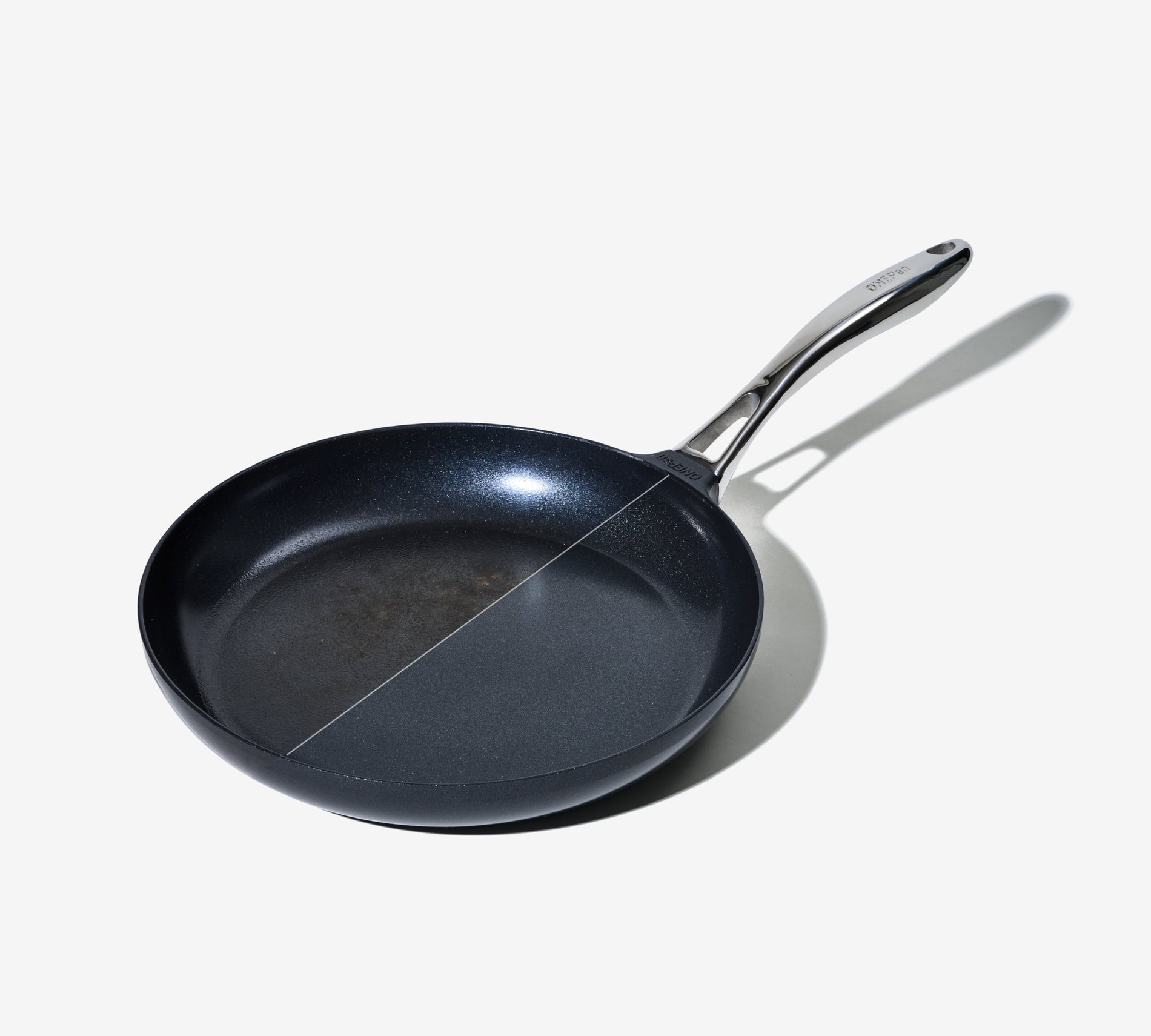
Re-Coat to Re-think your effect on the environment
We don't see the logic in throwing away perfectly functional materials, like the aluminium your OnePan is made from, just because the non-stick eventually gets worn out. By choosing to Re-Coat your OnePan you help to reduce up to 95% of CO2 emissions compared with buying a new pan.
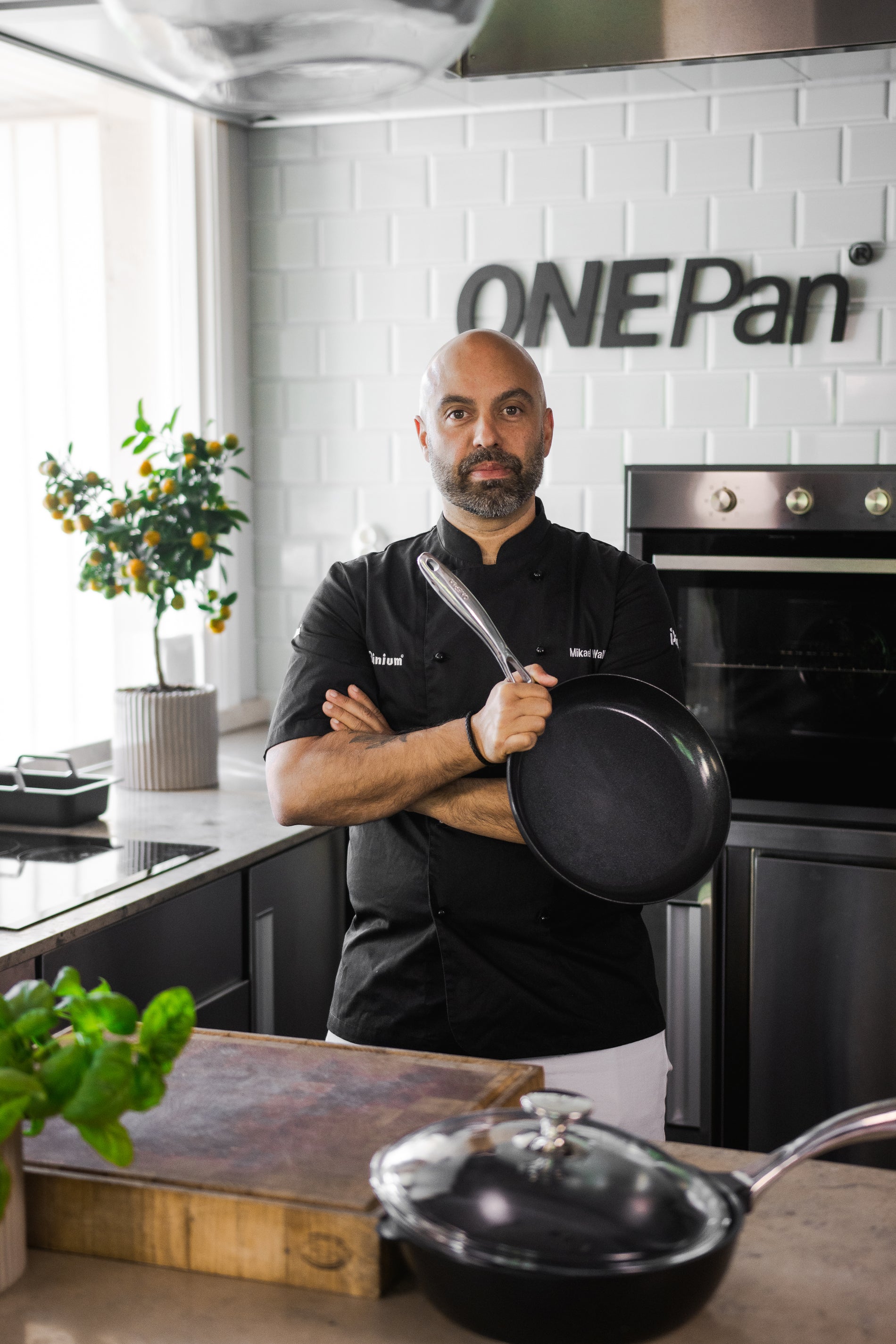
A circular pan, and not just because it’s round
OnePan exists to change the way kitchenware is produced and used - and what happens to it at the end of its life.
'The world does not need more poisonous low quality frying pans that are thrown away when the nonstick coating is worn out. As a previous chef I saw this happening all the time. I had an idea and a dream about solving this type of production and consumption when we founded OnePan: no more poison, no more discarding functional material'
- Mikael Wallborg, CEO and co-founder
Good to know (for the OnePan nerd)
Our coating is ceramic and the non-stick properties are made with silica oil. The technique is called SolGel. It's non-toxic and made without any PFAS-chemicals.
Silica Oil is an inert substance and can be found naturally both in the human body and in nature.
PFAS is a harmful group of man-made chemicals that is used in a variation of products to repel fat, dirt and water from a surface. It can be found in products like make-up, paper take-away boxes, ski wax, waterproof clothing and non-stick frying pans (such as Teflon). Research shows that PFAS intoxication causes an increased risk of cancer as well as hormonal disfunction, which can cause fertility problems for both men and women. It is also called the 'Forever Chemical' as it can never be broken down by nature. This means that PFAS accumulates in nature and can be found in both the water we drink and the air we breathe.
A non-stick pan containing PFAS will release these toxic chemicals at the slightest scratch or if you overheat your pan. A OnePan will not, as we produce our pans without using PFAS chemicals. Instead, we use a ceramic coating that can be broken down by nature and is harmless to the human body – even if you get a scratch in your pan.
All non-stick coatings have varying lifespans depending on how they're handled and how frequently they're used. Since the owner of the pan can cook in it anywhere from once a week to three times a day, it is impossible to provide a lifespan that applies to everyone. It's also a matter of personal preference when you feel that it no longer functions as it should.
Our rule of thumb is therefore to order a Re-Coat when you normally would have thrown away you non-stick pan.
To extend the lifespan of your non-stick coating as much as possible, we recommend to check out ourcare tips.
Teflon is just one of many thousands of coatings that contain PFAS. So, whether the coating is called Stratanium, Titanium, or Diamond, it is likely to be made of PTFE (the technical term for highly fluorinated coatings). Don’t be misled by claims that your pan is PFOA-free or PFOS-free; this is a tactic manufacturers use to create the impression that their products are free of toxins. Any product that is not entirely free of PFAS might still release toxins into your food.
If we could, we would have loved to. Sadly, most pans are not made to be Re-Coated. Less durable pans will deform and lose their shape if they go through our Re-Coat process. The more premium, durable pans often have handles that are either plastic or attached to the pan, which makes them impossible to Re-Coat.
